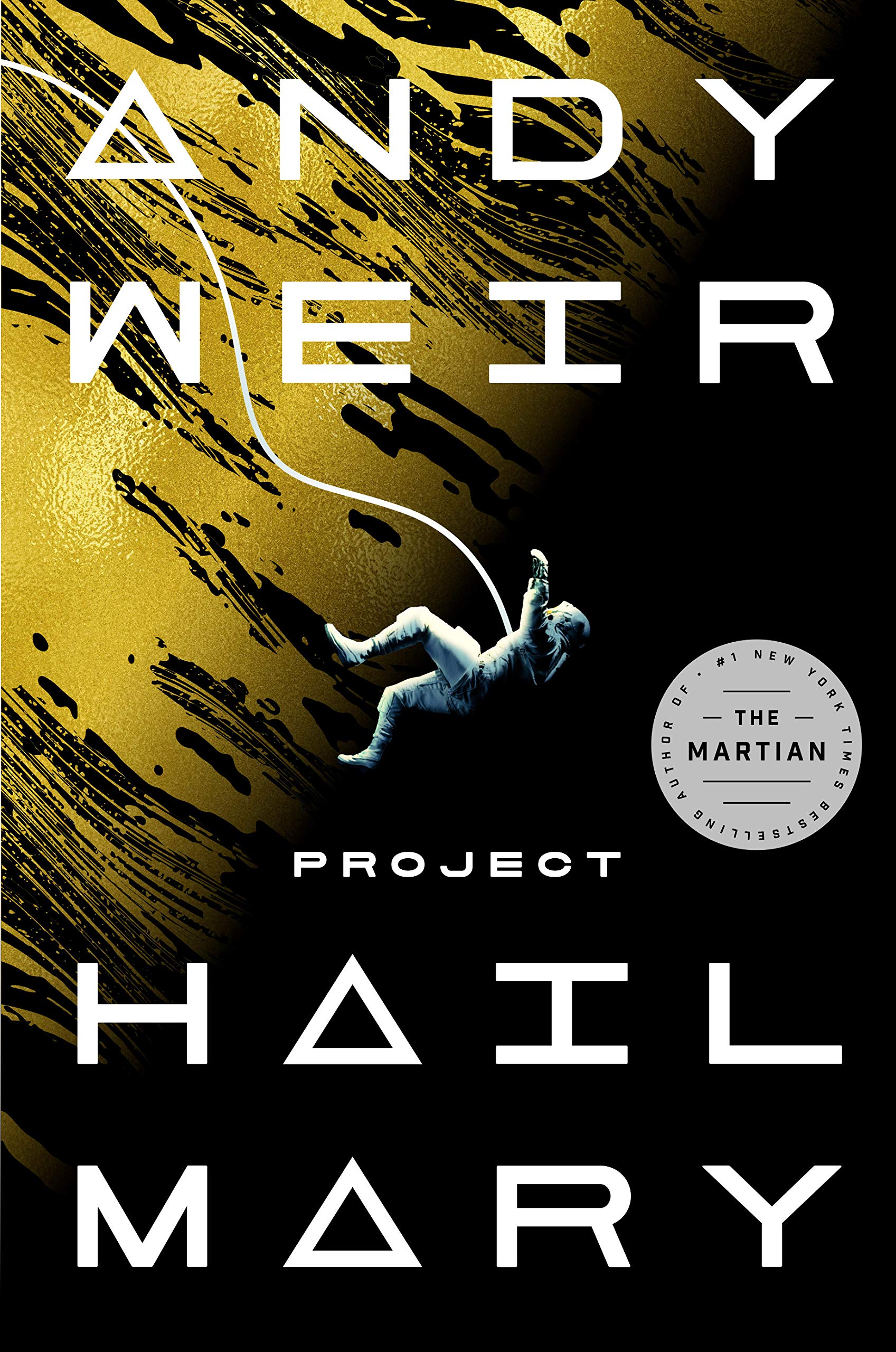
Over the weekend I finished reading Project Hail Mary, the latest book by author Andy Weir. Actually, saying I read the book really doesn’t capture the process; you might say instead that I devoured it. Weir also wrote The Martian, and if you enjoyed that book (or even just the enjoyable Matt Damon movie version of that story, although I thought the book was better), I’m pretty sure that you’ll also enjoy Project Hail Mary.
The plot of the book grabs your attention from the very first page. The main character, Ryland Grace, wakes up from an enforced multi-year coma that has left him mentally sluggish and forgetful about pretty much everything. As he slowly regains his memory, he realizes that he is on a spacecraft and was part of a three-person crew that has been sent to a faraway star system. Unfortunately, his two crewmates didn’t survive the prolonged coma, and he is alone except for his robot caretaker. As his memories gradually return, he not only realizes things about himself, he also recalls that the purpose of the mission was to try to save the Earth by figuring out a way to eliminate the threat of astrophages–tiny organisms that are consuming the Sun’s energy and threatening to convert the Earth into a frozen waste that humans and other creatures cannot survive. His crew was sent on a one-way suicide mission to the Tau Ceti system because that star–alone among the stars in our solar system’s neighborhood–isn’t showing signs of its output being affected by astrophages.
I won’t spoil the book for those who might wish to read it; obviously, I thought it was well worth the read. I do want to say two general things about the book, however. First, the book–like The Martian–makes me wish I had paid more attention to science and math courses in high school, and actually taken some more math and science classes in college. In both books, Weir’s characters routinely use their scientific knowledge, and their deftness with math, to solve imponderable problems and develop practical solutions to fend off one potential disaster after another. If school boards are looking to incentivize kids to take more math and science courses, assigning the kids to read The Martian and Project Hail Mary would be a good first step.
Second, and despite the fact that the plot of the book has the Earth and the human species teetering on the brink of extinction thanks to the astrophages ravaging the Sun, the book presents a fundamentally optimistic view. The nations of Earth manage to come together to address the astrophage blight, and Ryland Grace, like Mark Watney in The Martian, also takes a positive, cheerful approach to his impossible situation and the immense challenges he encounters. As he remembers more and more about how he got to where he is, works to overcome every challenge thrown his way, and maintains his sense of humor in the face of unimaginable circumstances, it’s hard not to come to like the guy.
It was a pleasure to read a book that projected such optimism about the future, and human beings. It was a special treat to read the book right now, when positive news and cause for optimism can sometimes be hard to find.
